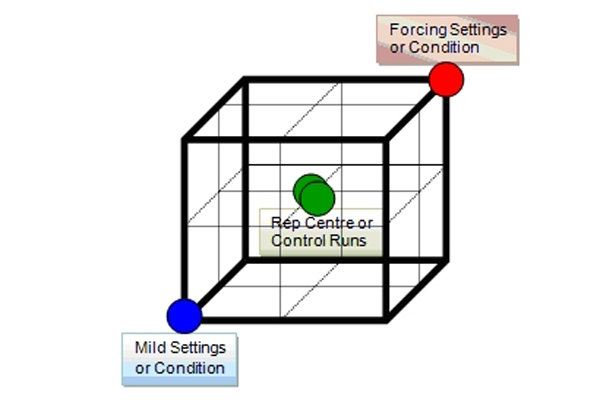Article: Scoping Designs
A simple but often useful approach to initial experimentation, offering information about factor ranges, reproducibility and your ability to achieve response goals!
When you have little knowledge of the factors, ranges, reproducibility of the process or measurement system, or of the results relative to the project goals, before committing time and materials to an experimental campaign consider using an economical minimum run scoping design to check the current experimental space.
A small carefully chosen set of baseline experiments will help to determine whether the equipment and method, together with the factors and ranges you have selected, are likely to achieve the desired goals repeatedly. Using as few as 4-6 experiments, run the process or method at:
- the mildest conditions or settings
- the most forcing conditions or settings
- repeated centre point settings to provide a pure noise estimate, as well as evidence of whether you are currently operating over an optimum

If it is unlikely you will achieve the goals, you can use the results of a scoping study to help you decide what to do next: add or drop factors; stretch or contract ranges to encompass or focus on an optimum region of your experimental space; follow up with a variation management study or measurement systems analysis due to excessive variation between the centre point results.
If the results from your scoping design are promising, then you can feel more confident that subsequent screening and/or optimisation studies are likely to prove successful!
To understand how scoping designs can provide a valuable first step in understanding your process better - and to see some typical scoping output - please feel free to read our article on Sequential DoE.
If you'd like to set up your own scoping study right now, then please try out our free online Scoping Design Builder!
To learn more about the benefits and limitations of scoping designs, as well as how you could incorporate them into your own Sequential DoE strategy, please consider attending our Effective DoE Implementation workshop.
